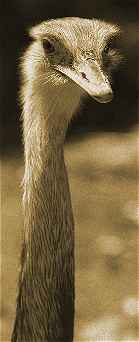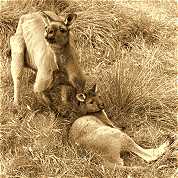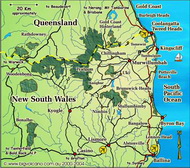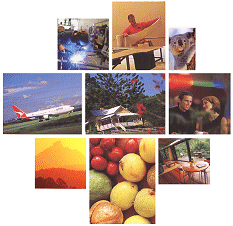Natural Attractions - Guidelines for Ecotourists
Tread Lightly
"take only photos, leave only footprints"
The natural attractions of the Tweed Volcano and World Heritage properties worldwide are environmental and cultural icons. They are special places, where “treading lightly” is encouraged and your co-operation in the preservation of these areas, is appreciated.
Photos © by D Palmer, Big Volcano Tourism

Just as with any other aspect of modern living, the places you visit on holiday, how you get around and the things you see and do while you're there, have an impact, environmentally and socially.
When you are on tour you can take some simple steps to reduce the negative social, environmental and economical impacts of your visit.
Become an "ecotourist", and you'll being doing your bit to ensure the places you've experienced, are there to be enjoyed again next time you visit!
Courtesy of the Ecotourism Association of Australia (EAA), 1997
Guidelines for Ecotourists
Before you go on your holiday read about the places you are about to visit and choose your ecotour operator AFTER asking the following questions:
- Does the operator comply with the EAA Ecotourism Code of Practice?
- Is there economic benefit going back to, or staying in the local community?
- Does the operator use local tour guides, services and supplies where possible?
While you are on tour minimize the negative social, environmental and economical impacts of your visit.
- Remember ... you are a guest.
- Be culturally sensitive and respect local customs.
- Allow enough time in each place to appreciate it.
- Travel by your own muscle power where possible.
- Be careful not to introduce exotic plants or animals.
- Stay on the track (trail).
- Leave an area cleaner than when you found it.
- Don't exploit an area when food gathering.
- Don't disturb wildlife or wildlife habitats.
- Familiarize yourself with local regulations.
- Don't use soap or detergents in natural water bodies.
- When travelling, spend money on local enterprises.
- Consider the implications of buying plant and animal products. Find out if they're rare or endangered, taken from the wild, and if the trade is approved of by local authorities.
- Don't encourage illegal trade by buying products made from endangered species.

When you return:
- Foster and generate a natural and cultural understanding of the places you have visited.
- Consider the environmental and cultural effects of your visit. Provide feedback to tour operators, your travel agent and government agencies (who manage the areas visited).
References and Readings
Guidelines for Ecotourists, Executive Officer, Ecotourism Association of Australia (EAA), Brisbane QLD, 1997


